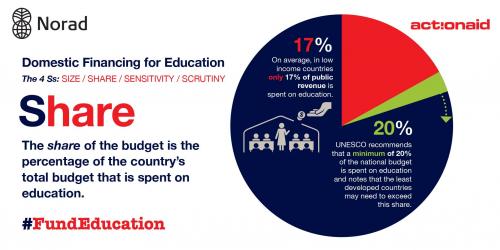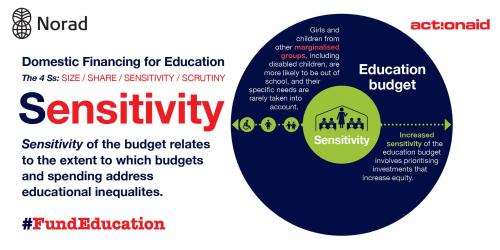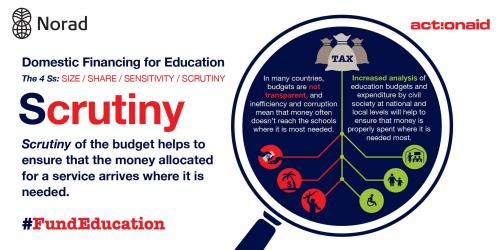How to achieve quality education for all and Leave No One Behind

In every country where we work, using a rights-based analysis of schools in order to guide national education policy, the budget for education has been either not sufficient or not effectively allocated and spent. This common situation is a key obstruction to achieving the UN development goal of ensuring that "all girls and boys complete free, equitable and quality primary and secondary education".
In order to address this, we have been building relationships between education advocates and tax campaigners to show how progressive domestic resource mobilisation - collecting enough tax money and spending it right - is a sustainable way to finance free, quality public education for all, leaving no one behind.
In collaboration with the Global Campaign for Education (GCE) and Education International we developed Financing Matters, a toolkit on domestic financing for education. In practice we have found that we need to focus on four principles, the "4Ss", to make sure financing is both sufficient and efficient.




The 4S Framework for education financing emphasises that “increasing the size of government revenues must be linked to clear commitments to increase the share of budgets spent on education and action to ensure that spending is sensitively targeted to help the most marginalised and actually arrives in practice”. More investment is needed to achieve a breakthrough in ensuring free, quality public education for all.
This framework provides a holistic and sustainable approach for governments to ensure that public education is free for all and there are no economic barriers to prevent families from sending their children to school, especially girls and marginalised people.
